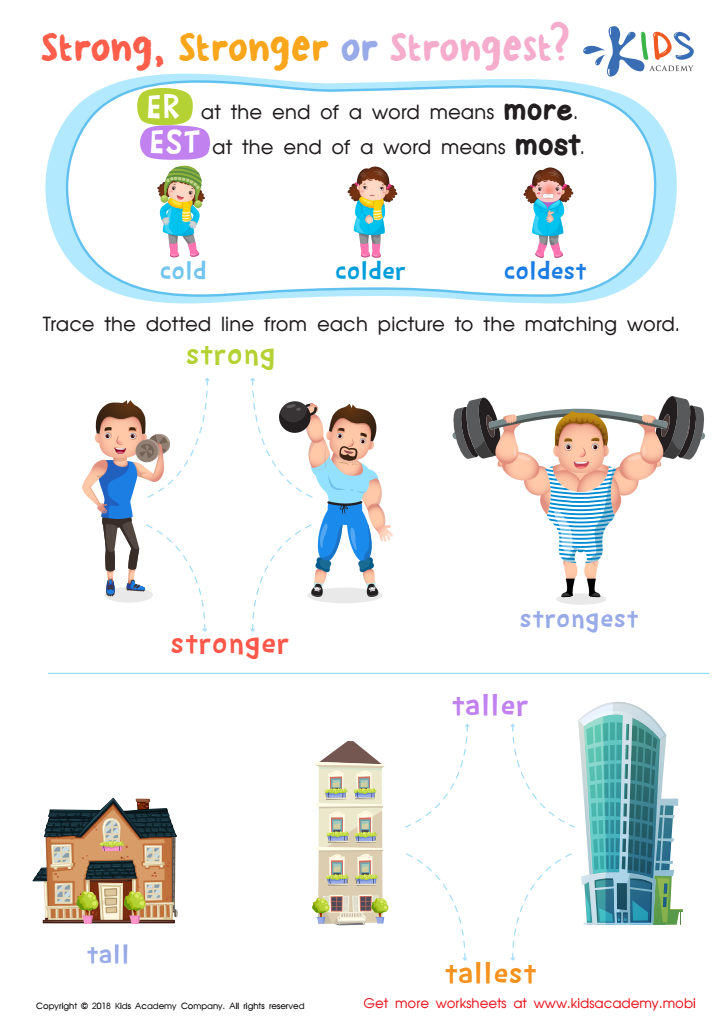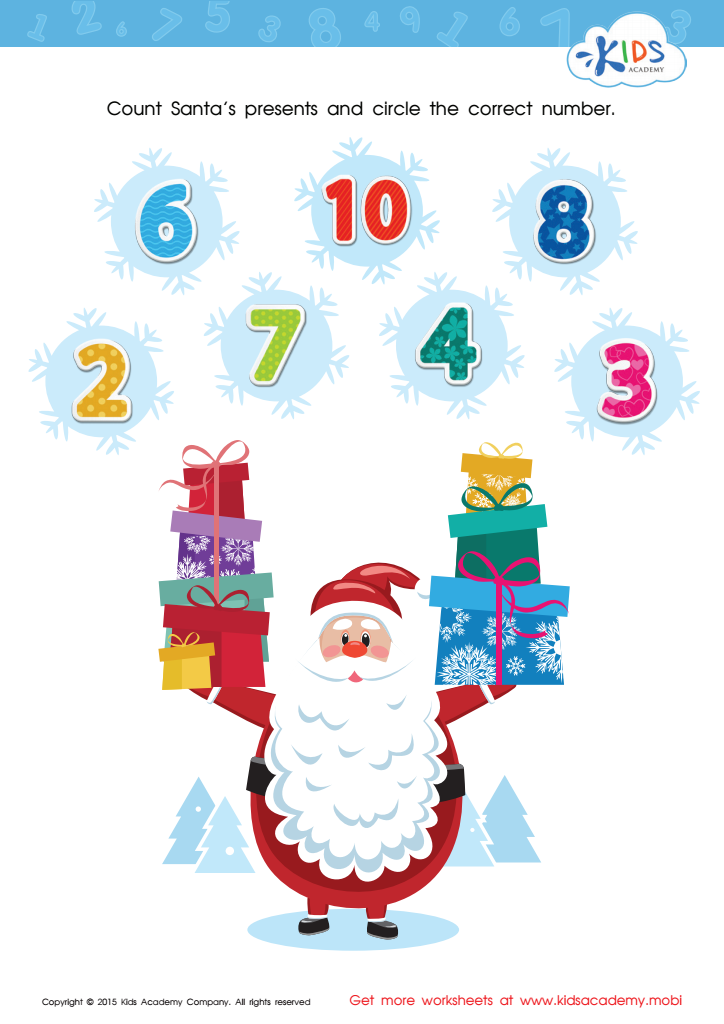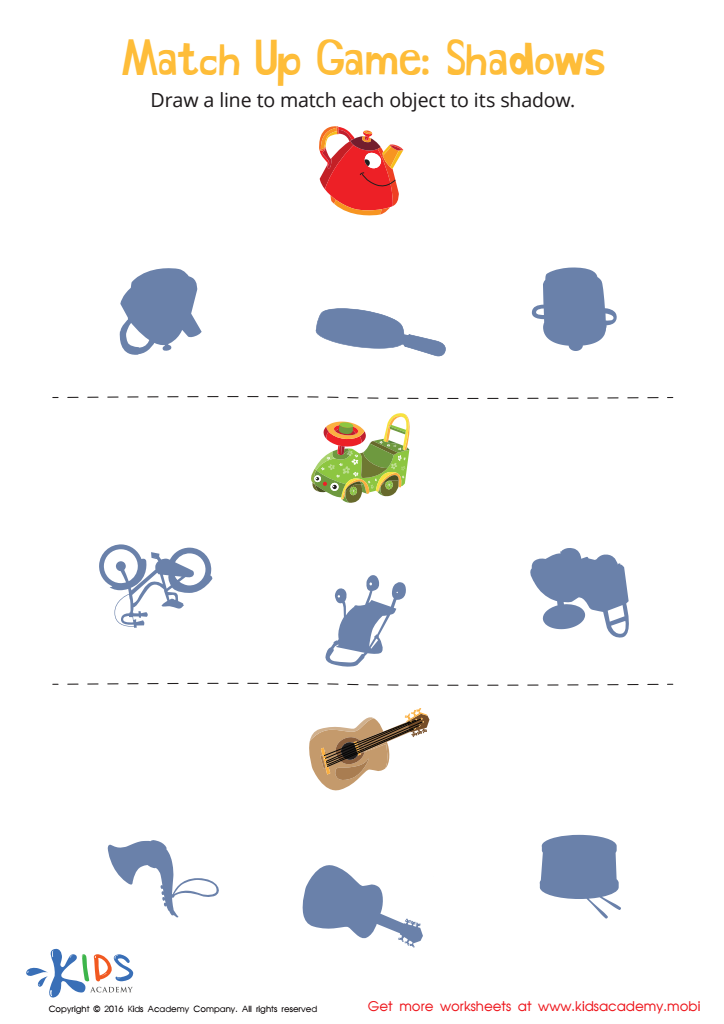Observational skills Extra Challenge Worksheets for 4-Year-Olds
3 filtered results
-
From - To
Enhance your 4-year-old's observational skills with our fun and engaging Extra Challenge Worksheets! Designed specifically for young learners, these worksheets cleverly promote critical thinking and attention to detail, ensuring children develop essential cognitive skills while enjoying the learning process. Each activity encourages your little ones to closely examine images, find hidden objects, and analyze patterns, fostering a sense of curiosity and exploration. Perfect for home or classroom use, our printable worksheets provide an excellent opportunity for educators and parents to support children's learning through interactive and entertaining challenges. Explore our range of activities and watch your child’s observational abilities soar!


Strong or Stronger? Worksheet


Count Santa's Presents Worksheet
Observational skills are crucial for young children's cognitive development, and parents and teachers should prioritize enhancing these abilities, especially in 4-year-olds. At this age, children are naturally curious about their surroundings, and observational challenges can scaffold their ability to notice details, patterns, and changes in their environment. Strengthening observational skills fosters critical thinking and promotes curiosity, enabling children to ask questions, explore deeper, and engage more meaningfully with the world around them.
Enhanced observational skills also play a significant role in areas like literacy and math. Children learn to recognize letters, numbers, and shapes through keen observation, which supports their academic growth. Moreover, these skills contribute to social-emotional development, as children learn to read social cues, understand emotions in themselves and others, and enhance their communication abilities.
When parents and teachers actively engage with children in observational tasks, they cultivate an enriching learning atmosphere that sparks creativity and imagination. This foundational skill not only prepares children for future academic success but also equips them with lifelong abilities to analyze and understand complex information, ultimately helping them become more proactive, engaged learners both in and outside the classroom.


 Assign to My Students
Assign to My Students






.jpg)









